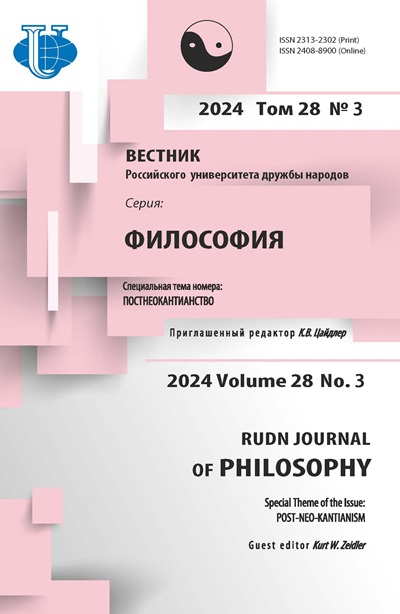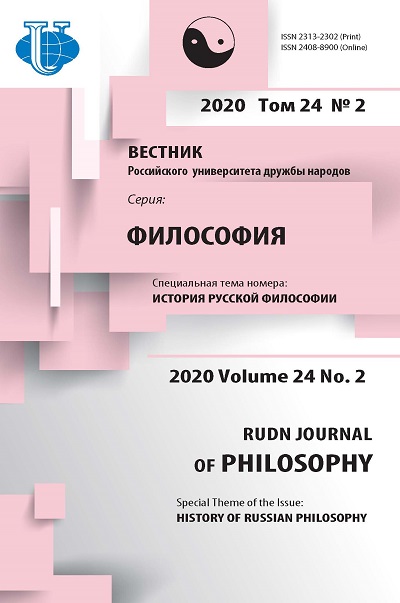Цифровое общество и многомерный человек (Новая постановка вопроса «Одномерного человека» Маркузе)
- Авторы: Черняк А.З.1, Леманто Э.1
-
Учреждения:
- Российский университет дружбы народов
- Выпуск: Том 24, № 2 (2020): ИСТОРИЯ РУССКОЙ ФИЛОСОФИИ
- Страницы: 286-296
- Раздел: СОЦИАЛЬНАЯ ФИЛОСОФИЯ
- URL: https://journals.rudn.ru/philosophy/article/view/23682
- DOI: https://doi.org/10.22363/2313-2302-2020-24-2-286-296
Цитировать
Полный текст
Аннотация
Одной из основных проблем социальной философии является технологическая революция и ее влияние на социальные системы. Критические взгляды на эти системы со стороны социальных философов отталкиваются от социальных проблем своего времени. Ключевым критическим тезисом Карла Маркса в его работе Das Capital является бедность, вызванная системой капитализма. Для него капитализм порождает только негативные социальные последствия, такие как рабство, угнетение, эксплуатация и обнищание. Герберт Маркузе указывает на ту же проблему, но выбирает иной угол зрения. Маркузе критикует общество изобилия. В «Одномерном человеке» Маркузе выступил с резкой критикой индустриального общества. Индустриальное общество, с его точки зрения, характеризуется изобилием и избытком, но это общество все еще угнетено новым типом рабства, называемым добровольным рабством. В итоге можно резюмировать: оба философа построили критику индустриального общества, но при этом стояли на разных позициях. Критика Маркса - это критика общества недостатка, голодного и неполноценного, критика Маркузе - критика сытого, обильного и избыточного общества. Цель этой статьи - показать, как одномерный человек Маркузе заканчивается в цифровую эпоху.
Об авторах
А. З. Черняк
Российский университет дружбы народов
Автор, ответственный за переписку.
Email: chernyak-az@rudn.ru
кандидат философских наук, доцент кафедры социальной философии
ул. Миклухо-Маклая, 6, Москва, Российская Федерация, 117198Э. Леманто
Российский университет дружбы народов
Email: lemanto-a@rudn.ru
докторант кафедры социальной философии
ул. Миклухо-Маклая, 6, Москва, Российская Федерация, 117198Список литературы
- Alexander ThM. Hartley Burr Alexander: Humanistic Personalism and Pluralism. The Pluralist. SPRING 2008; 3 (1). USA: University of Illinois Press; 2008.
- Goldman AI. Knowledge in a Social World. New York: Clarendon Press-Oxford; 1999.
- Marcuse H. Eros and Civilization: A Philosophical Inquiry into Freud. New York: Vintage Books; 1955.
- Marcuse H. One-Dimensional Man: Studies in the Ideology of Advanced Industrial Society. London: Routledge & Kegan; 1964.
- Marx K. Capital: a Critique of Political Economy. Volume I. First Published in German in 1867 and English first edition in 1887. Moscow: Progress Publishers; 2015. (In Russian).
- Mirandola Giovanni Pico della. Oration on the Dignity of Man. Washington: Regnery Gateway; 1956.
- Perkins RL (ed.). The International Kierkegaard Commentary. Two Ages: The Present Age and the Age of Revolution. Literary Review. Volume 14. Macon GA: Mercer University Press; 1984.
- Sartre J-P. Existentialism and Humanism. London: Eyre Methuen LTD; 1973.
- Suseno FM. Dari Mao ke Marcuse. Jakarta: Penerbit PT Gramedia Pustaka Utama; 2013.
- Toffler A. The Third Wave. New York: William Morrow and Company INC; 1980.
















